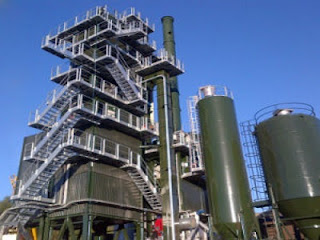When it comes to limited-scale projects that require asphalt mixing, finding the right equipment can sometimes be a daunting task. However, with the advancements in technology, the industry has witnessed the emergence of small-scale asphalt mixing plants that cater specifically to such projects. These compact yet powerful machines have revolutionised the way asphalt is produced and have found their niche in various applications.
One of the key benefits of small-scale asphalt mixing plants is their versatility.
They can efficiently handle a wide range of projects with relatively smaller scopes of work. Whether it's a residential driveway, a small parking lot, or a recreational path, these plants deliver exceptional results, ensuring a smooth and durable asphalt surface.
The applications of small-scale asphalt mixing plants are not limited to traditional construction projects.
Their adaptability extends to specialised endeavours as well. For instance, they are ideal for road repairs and patchwork, where a targeted approach is required to address specific areas of deterioration. Additionally, these plants find utility in remote locations or areas with limited access, where transporting large-scale equipment may not be feasible or cost-effective.
The benefits of utilising small-scale asphalt mixing plants go beyond convenience and adaptability.
They also contribute to sustainability efforts by reducing waste and energy consumption. These plants are designed to optimise material usage, minimising excess and maximising output, which translates to cost savings for the project owners. Furthermore, they employ energy-efficient technologies that reduce environmental impact, making them a responsible choice for eco-conscious construction practices.
Asphalt plant equipment suppliers, such as Bliss and Reels, have played a pivotal role in developing these innovative solutions.
Their expertise and commitment to excellence have contributed to the success of small-scale asphalt mixing plants, making them reliable options for limited projects. By leveraging their knowledge and experience, these suppliers have designed equipment that maximises efficiency and productivity, while still maintaining a compact footprint.
Asphalt Plant Equipment Suppliers
With the support of reputable asphalt plant equipment suppliers like Bliss and Reels, these plants have become game-changers in the industry. Our ability to deliver high-quality asphalt surfaces, their versatility, and their contribution to sustainability make them invaluable assets for any project with a smaller scope of work.
Suggested
Read: https://medium.com/@blissandreels/benefits-of-investing-in-an-asphalt-concrete-plant-9cc56094d0b

Comments
Post a Comment